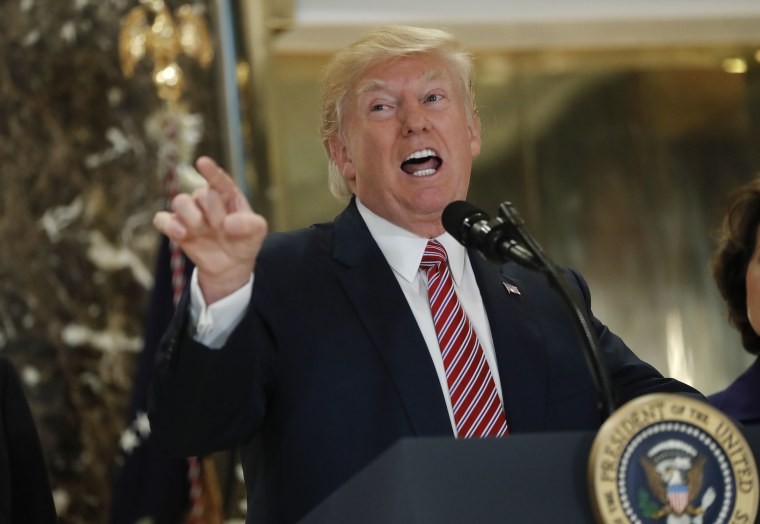A month later, it's still hard to believe the controversy even happened. In the aftermath of violence in Charlottesville, Donald Trump created an international firestorm by arguing that "both sides" -- racist protesters and anti-racism protesters -- bore equal responsibility for what transpired, adding that there were many "fine people" among the bigots.
In the days that followed, members of several White House advisory boards resigned in disgust; organizations started cancelling events at Mar-a-Lago; and even some congressional Republicans and members Team Trump were publicly critical of the president's bizarre remarks.
Yesterday, talking to reporters aboard Air Force One, Trump apparently thought it'd be a good idea to bring all of this up again.
"[Sen. Tim Scott (R-S.C.) and I] had a great talk yesterday. I think especially in light of the advent of Antifa, if you look at what's going on there. You have some pretty bad dudes on the other side also, and essentially that's what I said."Now because of what's happened since then with Antifa, when you look at really what's happened since Charlottesville, a lot of people are saying, and people have actually written, 'Gee, Trump may have a point.' I said there's some very bad people on the other side also."
To appreciate the context, the president did speak on Wednesday with Tim Scott, the Senate's only African-American Republican, who had concerns about the president's rhetoric on race. There was some disagreement afterward about how their chat went.
Regardless, common sense suggests Trump would want to leave these self-inflicted wounds behind him, but his sense of personal grievance is plainly overwhelming his judgment -- and not for the first time.
I remain curious, though, about the president's repeated use of the phrase "other side." To hear Trump tell it, there were bad people among the racists, but there were "some pretty bad dudes on the other side" and "some very bad people on the other side."
Perhaps the White House could offer some clarity on this. In Trump's framing, does he see right-wing extremists as being on his side, while they confront their opponents on the "other side"?
